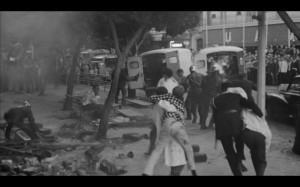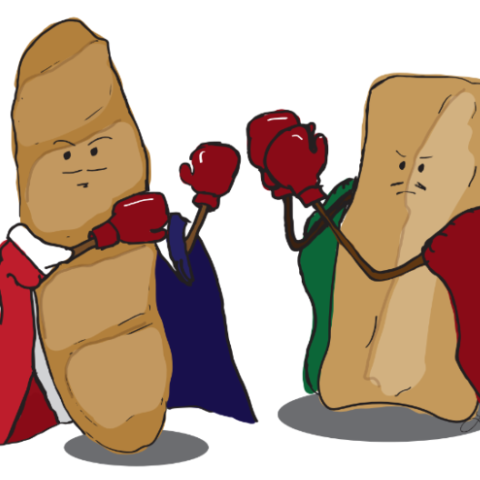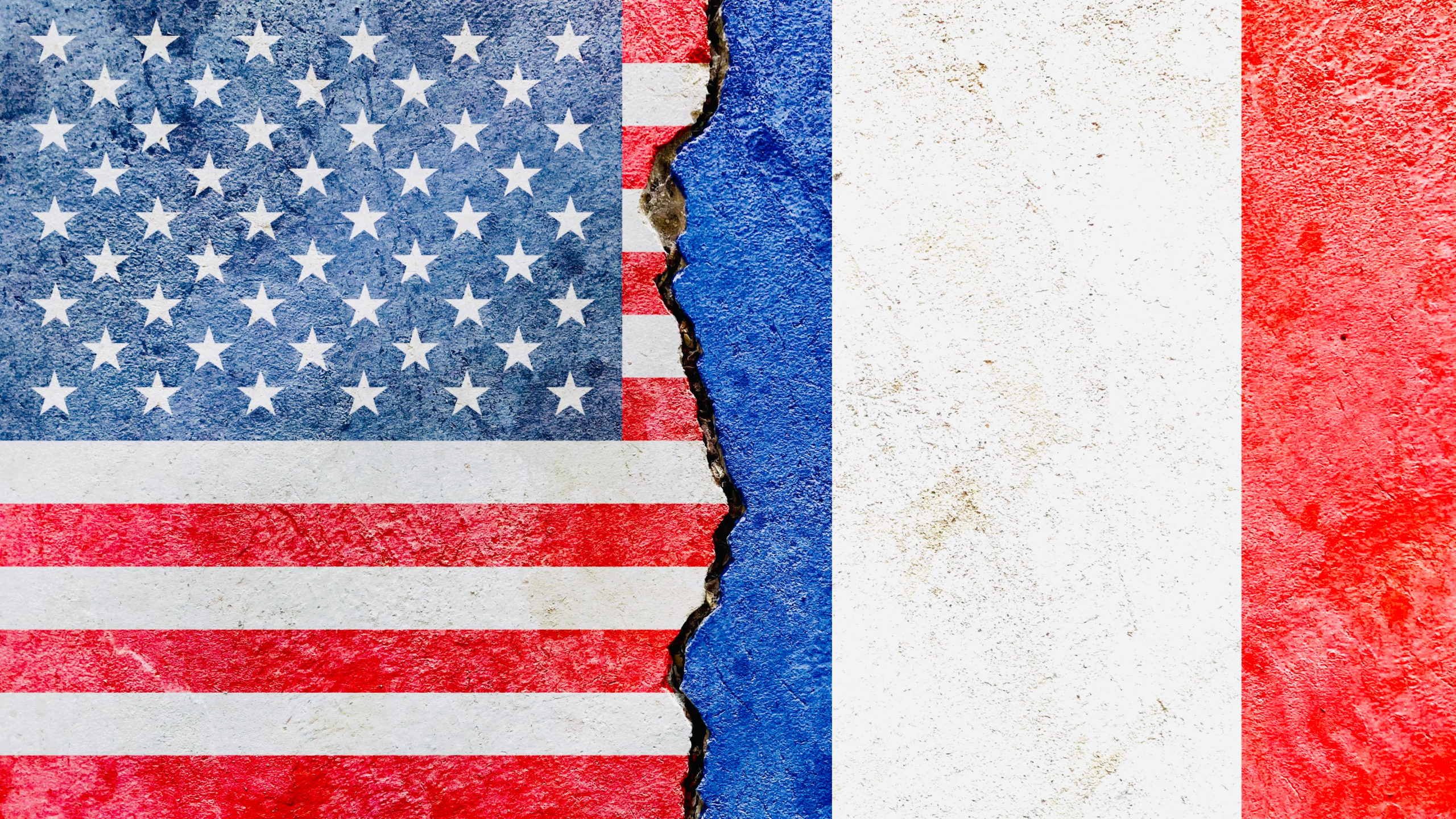By: Park MacDougald 
Ask any student of international politics to list the major issues of the post-WWII order, and you will likely hear something about decolonization. For over a century prior to the conclusion of hostilities in 1945, European Powers – mostly Britain and France but to a lesser extent Germany, Belgium and the Netherlands – had controlled almost all of the Middle East and the African continent. Following the Second World War, the two remaining colonial powers, Britain and France, began to slowly relinquish their grasp over former colonial territories as a result of mounting costs of maintenance, opposition in the colonies themselves, and international pressure from an increasingly anti-imperialist world. Sometimes control was abdicated willingly by the colonial power (for example in the British Mandate of Palestine), but many times it took violent conflict to persuade the colonial power to grant independence. The French-Algerian War (1954-1962) was one of the bloodiest and most significant of such conflicts. If Americans have knowledge of the Algerian War, it is likely in this context: a French colonial possession, tired of years of exploitation and oppression, finally rose up and won their independence through force of arms. However, the conflict extends far deeper than this surface narrative, and many of the events of the Algerian War provided a blueprint for successful use of violent extremism for political ends in the modern world order.
French rule in Algeria dated back to 1830, when Restoration monarch Charles X ordered the invasion of Algiers as a way to bolster his lagging popularity at home. Following the French Revolution of 1848 and establishment of the Second Republic, French overseas territories were incorporated as départments, meaning that, for all official purposes, they were no longer colonies subordinate to the mother country but rather parts of the mother country itself. This was a significant development and meant that Algeria’s relationship to France, at least in the eyes of the law, was more akin to Alaska’s relationship to the US than India’s to Great Britain. In addition, although racial discrimination was rampant, citizenship was not limited to pied-noirs (the term applied to Europeans [French and otherwise] who had settled in Algeria and their children), but was conditionally offered to the native Muslim population of Arabs and Berbers. The condition though, was one that proved unacceptable to many. The French assimilation policy was based on the tenets of the French Revolution – liberté, egalité, fraternité, and, importantly in the case of Algeria, secularism or laïcité. French citizenship was not defined by race, religion, or ethnicity, but rather by an acceptance of French language and values. For Muslim Algerians, the acceptance of French citizenship represented a tacit acceptance of secularism and rejection of sharia that for most amounted to apostasy – a crime punishable by death in Islam. As a result, most Muslims chose not to take their vows of citizenship and remained disenfranchised.
Due to Algeria’s location on the Mediterranean and long period under French rule, it possessed a large population of European pied-noir’s who owned most of the property and dominated local politics despite making up a minority of the population. Due to the inherent difficulties in Muslims accepting French citizenship, this meant that the overwhelming majority of Algerian “citizens” were Europeans, thought the majority of residents were Arabs or Berbers. In addition, the introduction of penicillin and European medical techniques had the effect of exploding the native population. In 1830, Algeria was home to 1.5 million Arabs. By 1906 this number had jumped to 4.5 million, and by 1954 that number had doubled to 9 million. As a result, the pied-noirs, already a minority, were becoming an increasingly small percentage of the populations while continuing to hold a monopoly on political and economic opportunity. Following World War II, the government in Paris acceded to demands for reform by declaring all residents of Algeria to be French citizens, however the “free” elections that followed were rather crudely rigged in favor of the Europeans. Violence began to break out – in May of 1945 103 Europeans were massacred, prompting a vast and overwhelming response by the French Military, who killed over a thousand Arabs in various airborne reprisals designed to discourage any further violence.
It is at this point that French control of Algeria began to deteriorate and political extremism took hold. By the 1950s, Algeria had been under French rule for 120 years, and despite widespread discontent with economic and political inequality most Algerians favored internal reform rather than outright independence. It is estimated that at the time of the war’s outbreak, only about 15-20% of the Algerian population favored a political break with France. For its part, the French government considered secession as unthinkable. Both sides recognized that Algeria’s future as a part of France hinged on the acceptance of a dual identity by most Algerians – that of being both Muslim and French. It is for this reason that the nationalists, led by future Algerian president Ahmed Ben Balla, sought to divide the country along religious and ethnic lines.
The strategy of the nationalist Front de Libération Nationale (FLN) hinged on a violent version of what we today would call identity politics – they sought to eliminate, through whatever means necessary, moderates on both sides, driving a wedge between the Europeans and the Muslims that would eventually force the country to split along entirely ethnic and religious lines. In this regard they were highly successful. They pursued a campaign of terror, organizing ambushes on pied-noir settlements and assassinating pro-Muslim Europeans in order to turn white public opinion against the natives. Their most vicious attacks were reserved for the Muslims who they considered “traitors” – soldiers, professors, imams, clerks, and others who remained loyal to the idea of a French Algeria, often maiming their bodies and leaving them in public squares. The French military responded with terrific force – carrying out large scale bombing raids and vengeance-minded attacks on Arab villages that drove the message home to anyone still on the fence – political affiliation meant nothing. It became a question of survival for both whites and Arabs to side with their respective ethnic groups, as all other distinctions were proving illusory.
By the time the Algerian War ended in 1962, it had consumed the French 4th Republic. Student protests – a preview of the Vietnam protests that would rack the United States half a decade later – were a mainstay in Paris, and the so-called café wars, between competing Algerian nationalist groups, gave European populations their first taste of modern style terrorist bombings. France finally agreed to Algeria’s independence, but not before a military coup had installed Charles de Gaulle as president of the newly formed 5th Republic. However, the most lasting implications of the Algerian War are the way in which they inform terrorist tactics today. The goal, one that has been repeated in subsequent conflicts all over the world, is to ensure that any voices of moderation are silenced, whether through violence or through escalation of rhetoric. Equally important is the lesson that America learned the hard way in Iraq and Afghanistan: that excessive military retaliation to acts of terrorism only serves to further divide the population along ethnic or religious fault lines. Whether one can conclude who was “right” or “wrong” in such a conflict is questionable. Both sides utilized torture and indiscriminate killing to pursue their ends. What is unquestionable is that the conflict offers important lessons looking forward to the conflicts of today and tomorrow.

